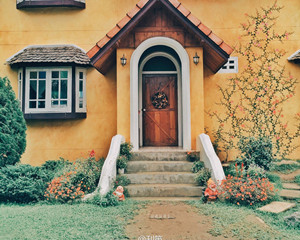The one group got all the support that they needed- whatever they wanted they got. They asked for certain food- they got it. They asked to be helped, carrying out certain tasks- they got it. Everything was done for them. In many ways, the old age homes that many people dream of.
第一組所有需要都能得到滿足,不管什么需要都能滿足。他們想吃什么,就能吃什么;他們想在某些事情上尋求幫助,同樣也能滿足。所有事情都無需他們動手。很大程度上來說,這是大多數人夢想的養老院
And then the second group didn't have as good. Not everything was catered for them. They very often had to do their own things. For example, notably, they had to water their own plants.
而第二組就沒有這么好的待遇了,他們不能衣來伸手飯來張口。時常都需要自己動手。比如說,他們必須自己澆花

They very often had to set their own routine during the day. The service wasn't as great as the first group. They had to tell the employees if they needed something. They very often had to get it themselves. And again, they planted- they watered their own plants.
他們必須自己規劃每天做的事。服務沒有第一組那么周到。他們需要什么的話,必須自己告訴職員,經常需要自己動手豐衣足食。同樣,他們需要自己澆花
And what they did was- Langer created this two different scenarios and then went back 18 months later.
而研究的內容是——蘭格創造了這兩種不同的情境。然后一年半后再回來,
After 18 months, the second group, the group that watered their plants, the group that took care of their day, the group that was not catered for, in the same way as the first group- they were less likely to be depressed; they were happier; they were more energetic; more independent, physically healthier.
一年半后,第二組,自己澆花的那一組、自己照顧自己的那一組、沒有人管顧的那一組,跟第一組相比起來他們沒那么沮喪,他們更快樂、他們更有活力、更獨立、也更健康












